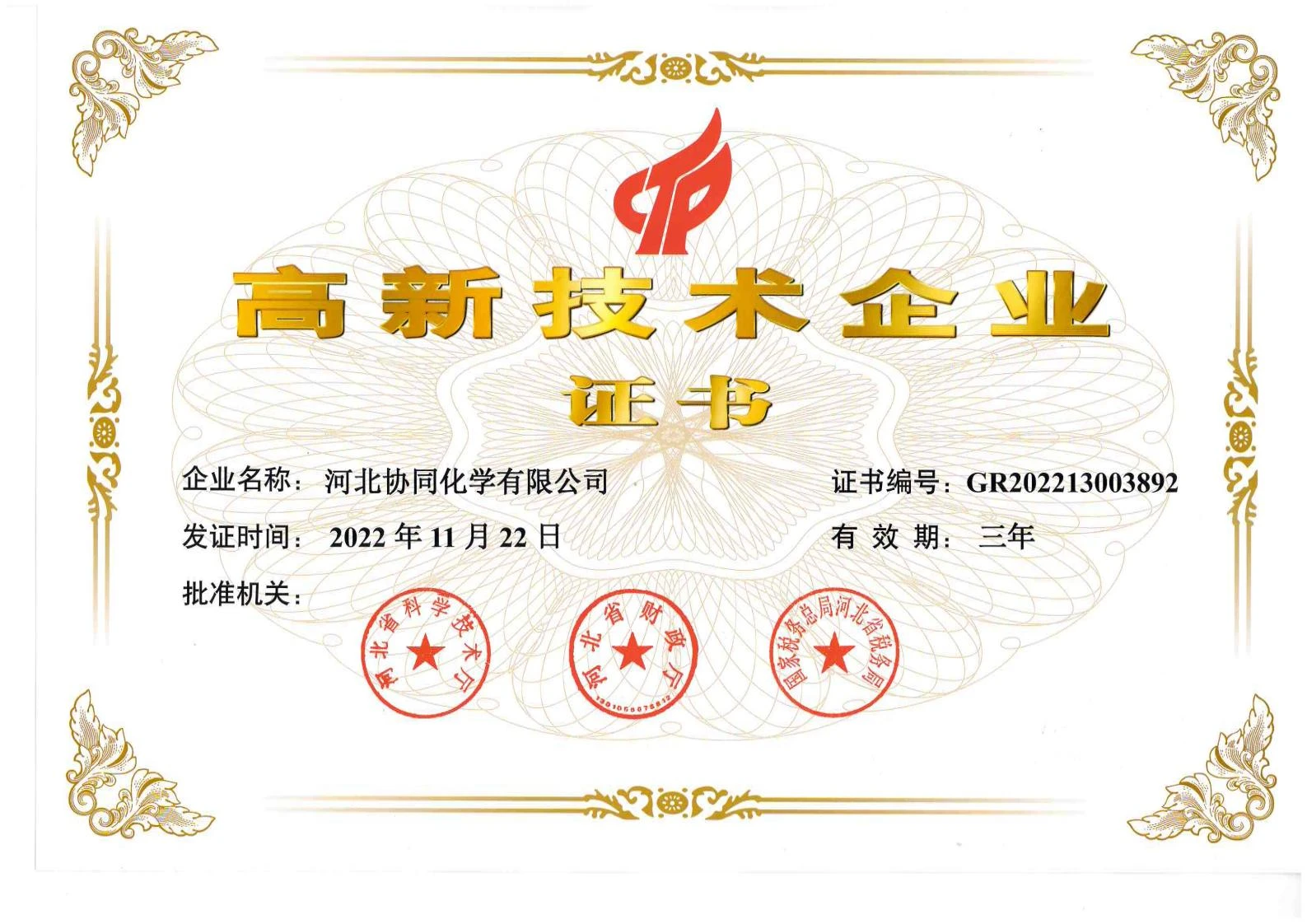
News
nóv . 04, 2024 12:04 Back to list
CE Certification for Biostimulant Production in Molasses Plants 提高植物生长的生物刺激素
CE Certification for a Molasses Plant Producing Biostimulants
In today's world, where sustainable agriculture is gaining increasing importance, biostimulants have emerged as a valuable tool for enhancing crop productivity and resilience. Among various sources of biostimulants, molasses—derived from sugar processing—is gaining attention due to its rich organic composition. For producers of molasses-based biostimulants, achieving CE certification is pivotal for ensuring high quality and market acceptance in Europe.
What is CE Certification?
CE certification indicates a product's compliance with European Union (EU) safety, health, and environmental protection legislation. CE marking ensures that products meet essential requirements and can be marketed within the European Economic Area (EEA). For manufacturers of biostimulants, CE certification is not just a badge of quality; it represents a commitment to production standards that prioritize human and environmental health.
The Importance of Molasses in Biostimulants
Molasses is a byproduct of sugar extraction, primarily derived from sugarcane and sugar beet. This viscous syrup is a rich source of carbohydrates, amino acids, vitamins, and minerals, making it an ideal raw material for biostimulant production. The natural compounds found in molasses can enhance soil quality, promote beneficial microbial activity, and improve nutrient uptake in plants. These beneficial effects can lead to healthier crops and improved yields, aligning with the goals of modern agricultural practices.
Navigating the CE Certification Process
The journey toward CE certification begins with understanding the regulatory landscape for biostimulants in the EU. As biostimulants, including those derived from molasses, fall under specific EU regulations, complying with these rules is critical. The primary regulation governing the use of plant biostimulants is the EU Fertilizers Regulation (EU) 2019/1009, which provides guidelines for the production and marketing of various fertilizers and biostimulants.
Step 1 Product Development and Quality Control
The first step towards obtaining CE certification is developing a product that meets the necessary standards
. This involves rigorous quality control processes, including1. Ingredient Sourcing Ensuring molasses is sourced from reputable suppliers with proper documentation regarding quality and safety. 2. Formulation Testing Analyzing the product for efficacy and safety through laboratory testing. 3. Microbial Assessments Conducting tests to identify beneficial microorganisms present in the molasses and ensuring they do not pose any health risks.
ce certification molasses plant biostimulant

Step 2 Compliance Documentation
Once product formulation meets the standards, the next step is to prepare comprehensive documentation. This includes
1. Technical Data Sheets Detailing the composition, benefits, and application methods of the biostimulant. 2. Safety Data Sheets (SDS) Providing critical information regarding the safe handling, storage, and disposal of the product. 3. Labels Ensuring that all labels comply with EU regulations and accurately reflect the product's characteristics.
Step 3 Testing and Certification
After documentation is complete, the product must be tested by accredited third-party organizations to verify compliance with EU regulations. Successful testing will lead to the issuance of a conformity assessment, which is crucial for obtaining the CE marking.
Step 4 Continuous Quality Assurance
CE certification is not a one-time process; it requires ongoing quality assurance. Periodic audits and compliance checks ensure that the production process remains in line with established standards. This ongoing commitment helps maintain the integrity of the product and the trust of consumers.
The Future of Molasses-Based Biostimulants
As the demand for sustainable agricultural practices rises, the market for molasses-based biostimulants is expected to grow substantially. CE certification not only facilitates access to the European market but also enhances the credibility of producers in the eyes of consumers and agricultural stakeholders. By investing in high-quality biostimulant production and adhering to regulatory requirements, molasses plants can play a significant role in fostering sustainable agriculture.
In conclusion, achieving CE certification for molasses-based biostimulants is a comprehensive process focused on product development, compliance, and continuous improvement. With the right approach, producers can significantly contribute to sustainable agricultural practices that benefit both the environment and crop yields, ushering in a new era of agricultural innovation.
-
Polyaspartic Acid Salts in Agricultural Fertilizers: A Sustainable Solution
NewsJul.21,2025
-
OEM Chelating Agent Preservative Supplier & Manufacturer High-Quality Customized Solutions
NewsJul.08,2025
-
OEM Potassium Chelating Agent Manufacturer - Custom Potassium Oxalate & Citrate Solutions
NewsJul.08,2025
-
OEM Pentasodium DTPA Chelating Agent Supplier & Manufacturer High Purity & Cost-Effective Solutions
NewsJul.08,2025
-
High-Efficiency Chelated Trace Elements Fertilizer Bulk Supplier & Manufacturer Quotes
NewsJul.07,2025
-
High Quality K Formation for a Chelating Agent – Reliable Manufacturer & Supplier
NewsJul.07,2025
